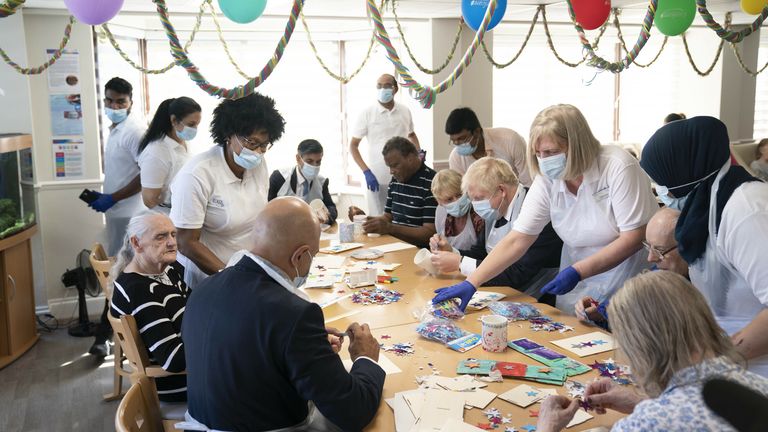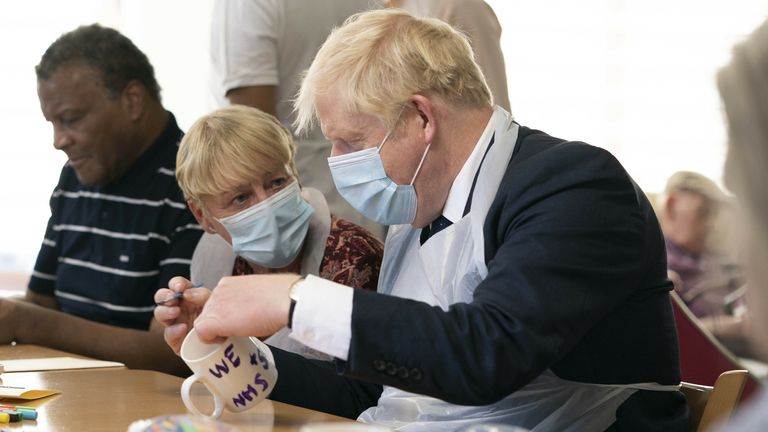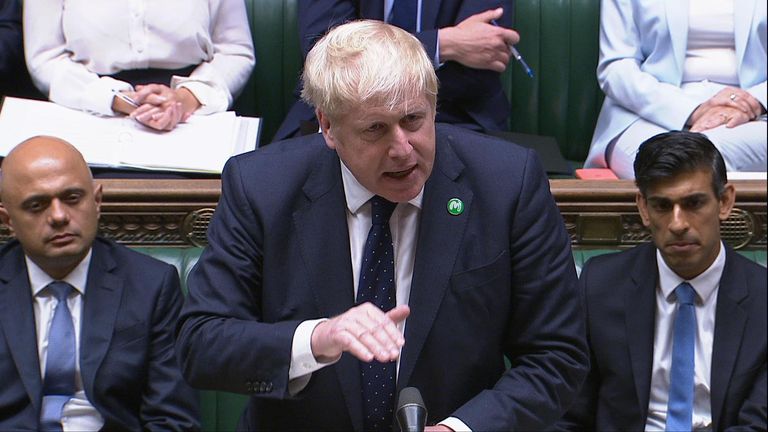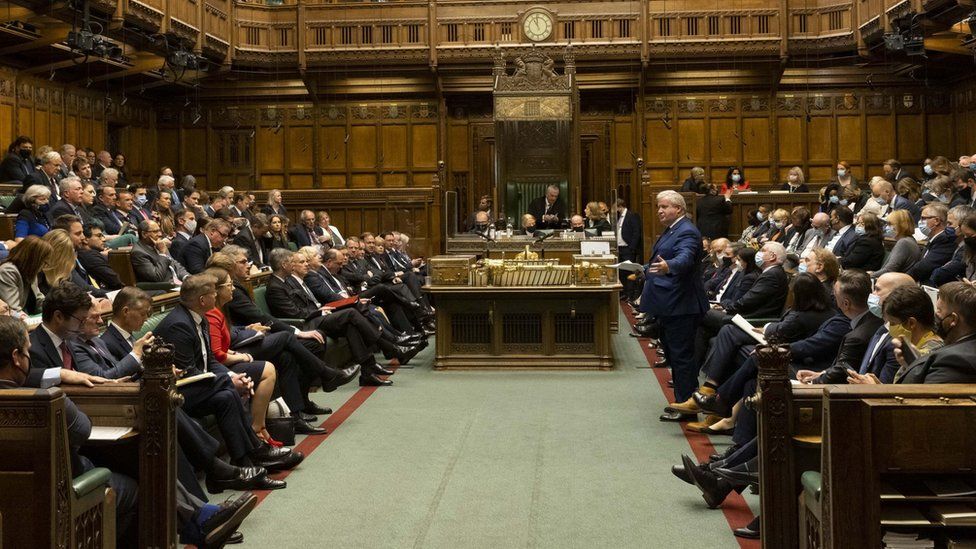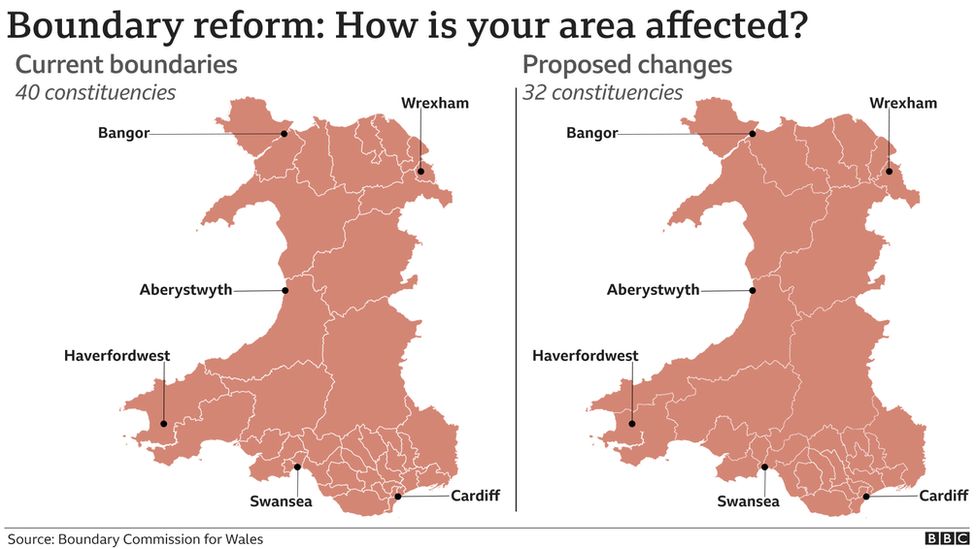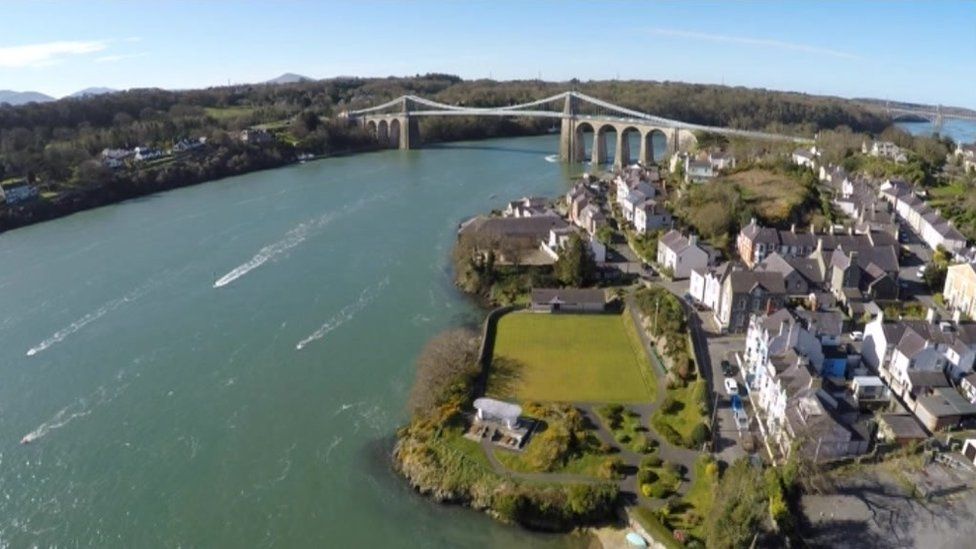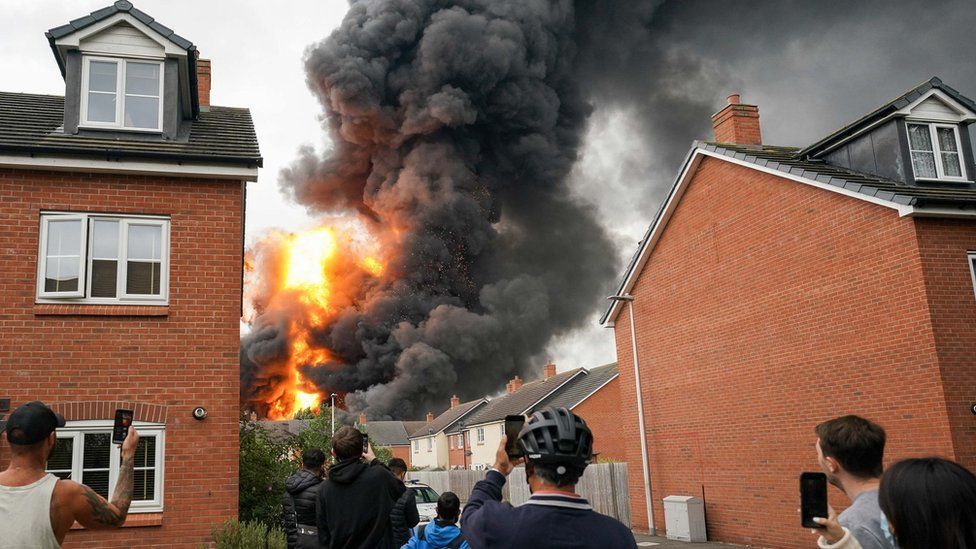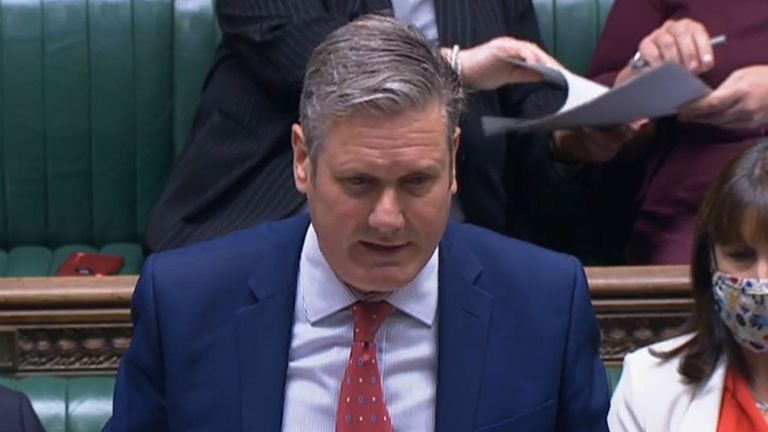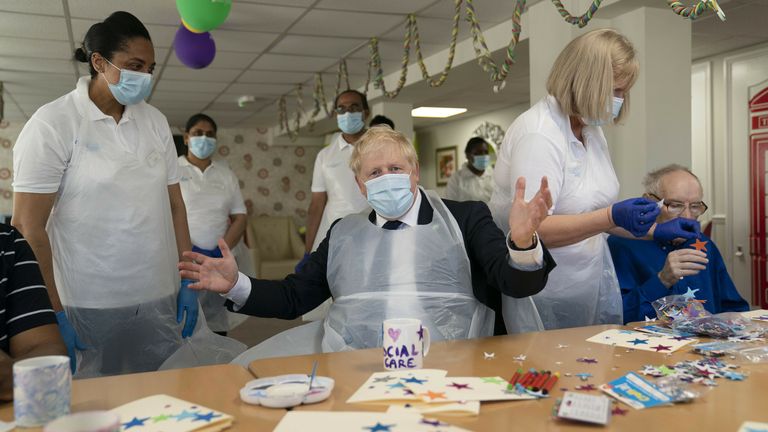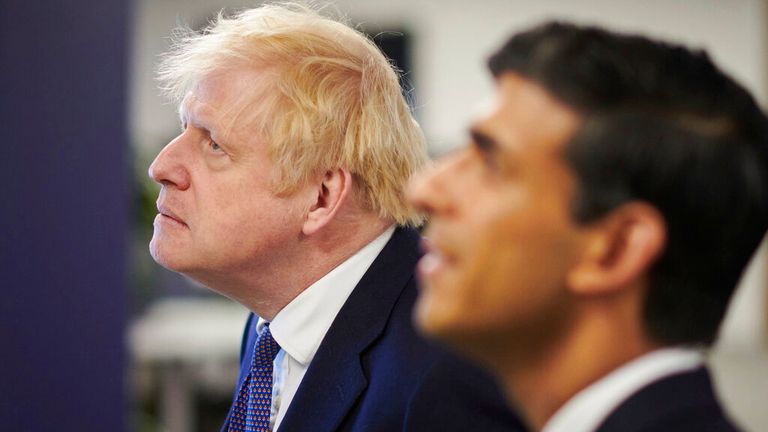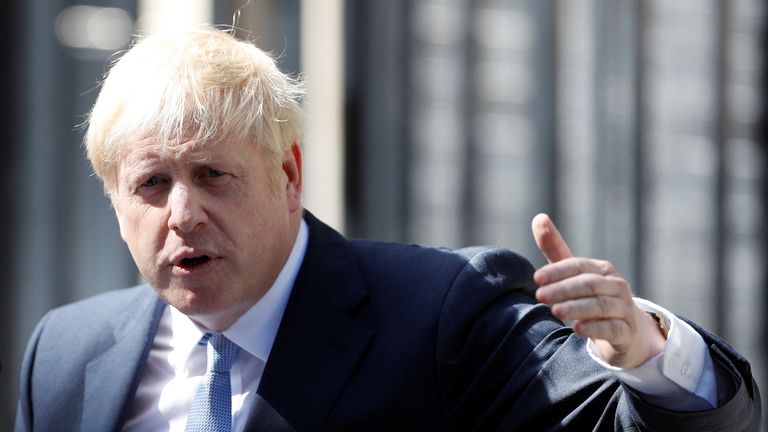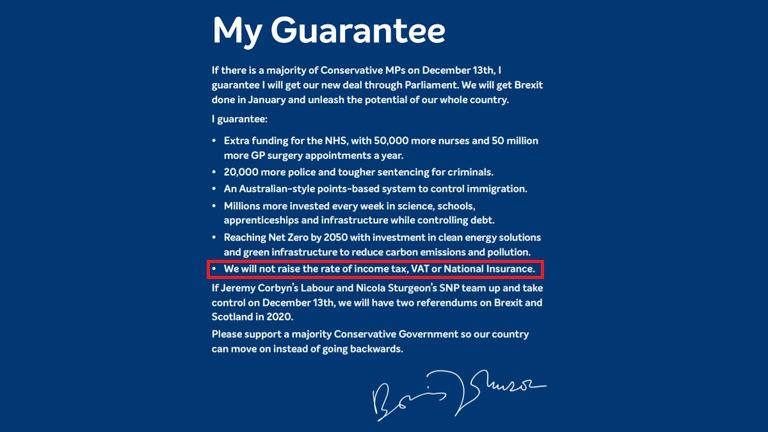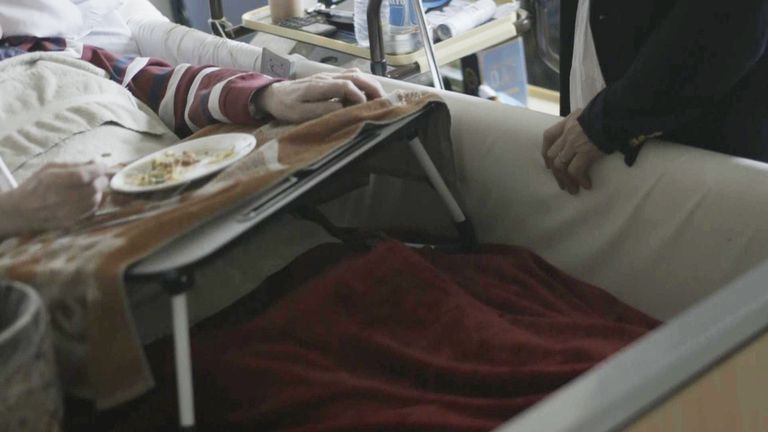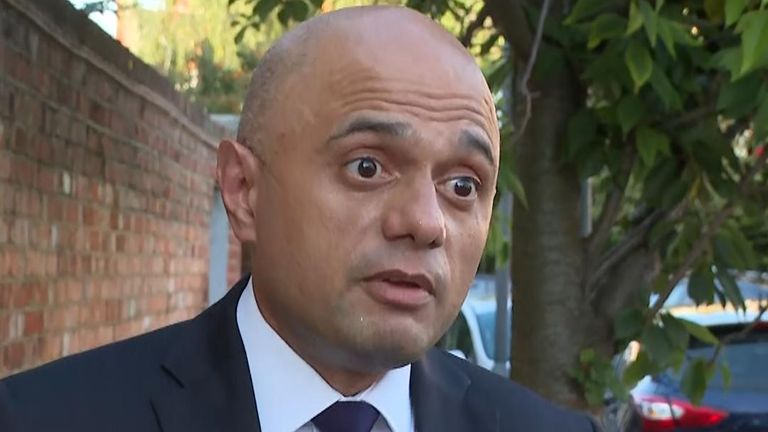A plan to hike National Insurance contributions will raise "enough money" to pay for reforms to the care sector in England and is "a very Conservative thing to do", Sajid Javid has said.
The health secretary told Kay Burley that while "I don't like raising taxes", without these changes, NHS waiting lists would have reached 13 million people in three years time - the equivalent to one person in every family.
But he later clarified that "no responsible health secretary" could guarantee the money raised will clear the backlog.
It comes as MPs prepare to vote on the biggest tax rise for decades to fund the NHS and social care reforms.
On Tuesday, Prime Minister Boris Johnson announced that National Insurance contributions will rise by 1.25 percentage points to pay for the social care system in England in a bid to end the "unpredictable and catastrophic costs" faced by many.
A social care package, which the prime minister has called "the biggest catch-up programme" in the NHS's history, will be funded through a new, UK-wide 'health and social care levy' from April 2022.
The government is confident it will win the vote later on Wednesday, but concerns remain both about how the £12bn will be raised and how much of it will be directed towards the care sector.
Asked if he is sure he is in the right party, as the Conservative 2019 manifesto promised not to increase taxes, Mr Javid told Sky News: "Yes, I am sure of that.
"I think what we have announced in the last 24 hours actually is a very Conservative thing to do.
"We are committed as a party to the NHS, I want the NHS to be there for everyone - a world class health service free at the point of use paid through general taxation.
"I, as health secretary, when I came into this job a couple of months ago and I was told that the waiting list - already at 5.5 million because of the global pandemic and the pressures that has created - could go to as high as 13 million in three years' time, I can't tolerate that, I can't accept that.
"So something had to be done and I think the British public understand that.
"Similarly, with adult social care, I think the fact that some people have this risk of catastrophic costs of care, that is not acceptable where you have some one in seven people that have to pay over £100,000 for their care.
"And I think it is a very Conservative thing to do to give people that confidence to know that their lifetime cost of care can be capped for them - the plan to cap it at £86,000 I think is the right thing to do to do it properly and sustainably.
"I don't like raising taxes, I want taxes to be as low as they possibly can be, but I think people understand if we want the NHS to be for us there always, doing its job, then we have got to properly fund that - and the same applies to social care."
Asked if the sum collected from rising National Insurance contributions will raise enough money to fix the current problems in the social care system, the health secretary said: "No I think this is enough money."
Pushed again on whether he can guarantee the money will clear the NHS backlog, he added: "No responsible health secretary can make that kind of guarantee."
Mr Javid later confirmed that £5.4bn raised by increasing National Insurance payments will go directly to social care.
The new social care plan was signed off by ministers at a Cabinet meeting on Tuesday morning after days of fury from Tory backbenchers.
The 1.25 percentage point increase is expected to raise about £12bn which, in the early years, will mainly be used to fund dealing with the NHS backlog.
This includes £2.2 billion a year for Scotland, Wales and Northern Ireland, as tax changes affect the whole of the UK.
The levy will be paid by working adults including those over the state pension age.
Announcing the plans in the Commons, the PM said the costs of the programme will be split between individuals and businesses and "those who earn more will pay more".
The PM's plan to overhaul the social care sector includes:
• A government pledge to invest £36 billion over the next three years to help the NHS recover from the pandemic.
• To also invest in reforming the social care sector.
• A promise that from October 2023, nobody will pay more than £86,000 for their social care - regardless of their assets.
• That the government will fully cover the cost of care for those with assets under £20,000, and contribute to the cost of care for those with assets of between £20,000 and £100,000.
Making a statement in the Commons on his new proposal on Tuesday, Mr Johnson said he accepts that the measure breaks a Tory manifesto pledge not to hike National Insurance, but that it was a necessary move due to COVID financial pressures.
"No Conservative government wants to raise taxes, I will be honest I accept this breaks a manifesto commitment. It is not something I do lightly but a global pandemic wasn't in anyone's manifesto," the PM told MPs.
"This is the right the reasonable and the fair approach. I think the people of this country understand that in their bones and they can see the enormous steps that this government and the Treasury have taken."
The PM also announced that there will be a 1.25% hike in the amount of tax that is paid on income from share dividends to help cover the costs of the social care package.
Labour leader Sir Keir Starmer said those with "the broadest shoulders" need to "pay more".
Speaking in the Commons on Tuesday, he said: "The alternative is obvious: a timetable, a plan to clear waiting lists just as we did under the last Labour government, a comprehensive report planned for social care dealing with the inadequacies I have just pointed out, and driving up the equality of provision, and not just tinkering with the funding model.
"We do need to ask those with the broadest shoulders to pay more and that does include asking much more of wealthier people including income from stocks, from shares, from dividends and from property."
MPs will vote on the proposals later on Wednesday afternoon.
https://news.google.com/__i/rss/rd/articles/CBMitwFodHRwczovL25ld3Muc2t5LmNvbS9zdG9yeS9oaWtpbmctbmF0aW9uYWwtaW5zdXJhbmNlLXdpbGwtcmFpc2UtZW5vdWdoLW1vbmV5LXRvLXBheS1mb3Itc29jaWFsLWNhcmUtcmVmb3Jtcy1pbi1lbmdsYW5kLWFuZC1pcy1hLXZlcnktY29uc2VydmF0aXZlLXRoaW5nLXRvLWRvLXNheXMtc2FqaWQtamF2aWQtMTI0MDE4NTDSAbsBaHR0cHM6Ly9uZXdzLnNreS5jb20vc3RvcnkvYW1wL2hpa2luZy1uYXRpb25hbC1pbnN1cmFuY2Utd2lsbC1yYWlzZS1lbm91Z2gtbW9uZXktdG8tcGF5LWZvci1zb2NpYWwtY2FyZS1yZWZvcm1zLWluLWVuZ2xhbmQtYW5kLWlzLWEtdmVyeS1jb25zZXJ2YXRpdmUtdGhpbmctdG8tZG8tc2F5cy1zYWppZC1qYXZpZC0xMjQwMTg1MA?oc=5
2021-09-08 06:45:00Z
52781857434961
